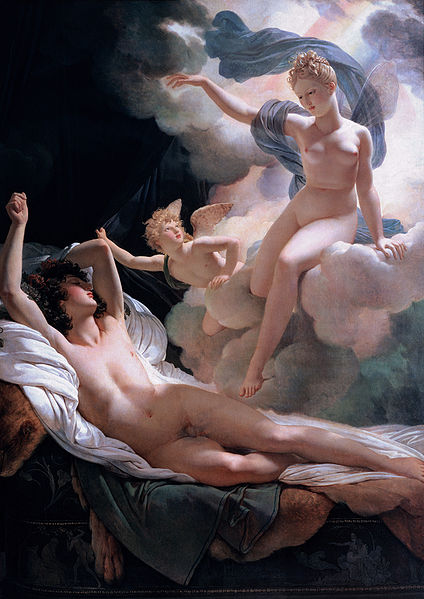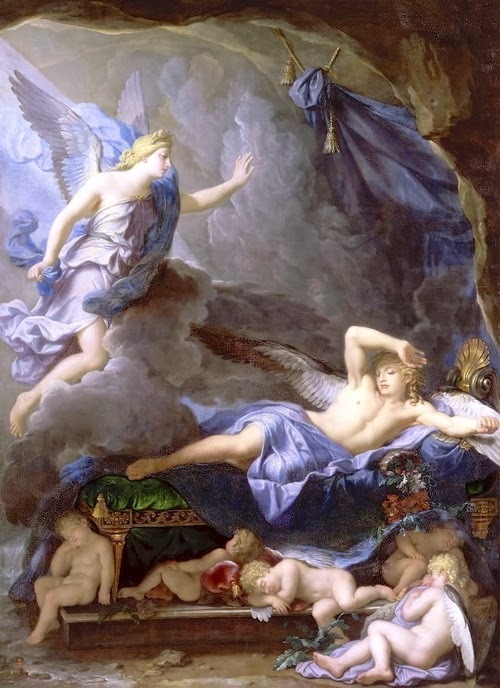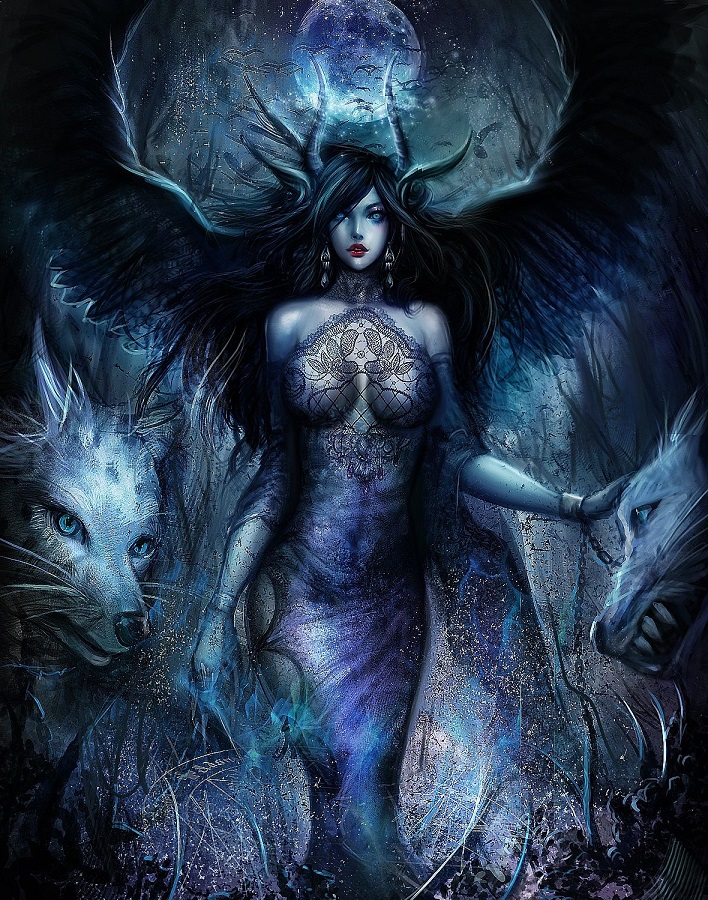Oneiroi
The Oneiroi were the spirits, daimones, or gods of dreams in Greek mythology.
According to Hesiod (Theogony), the Oneiroi were the sons of Nyx (Night) alone, although later writers described these gods of dreams as the sons of Nyx and Erebus (Darkness). As sons of Nyx, the Oneiroi can thus be described as brothers to the likes of the Moirai (Fates), Hypnos (Sleep) and Thanatos (Death).
In Greek mythology it was not really expanded upon as to who or how many Oneiroi there were, although this was a theme expanded upon in later mythology.
THE ONEIROI IN GREEK MYTHOLOGY
The Oneiroi, in Greek mythology, were though normally described as black winged daimones who resided in the dark, cavernous areas of Erebus. Many of the children of Nyx were said to reside nearby, including Hypnos, who himself had a cave there.
Each night the Oneiroi would depart from Erebus, like a flock of bats leaving their caves. As they Oneiroi departed from Erebus they would pass between one of two gates. One gate was made of horn, and the Oneiroi who passed through this gate would bring to mortals truthful, prophetic god sent dreams. The second gate was made of ivory, and the Oneiroi who passed through this gate brought only false dreams, or those dreams without meaning.
The Oneiroi would prove to be useful messengers for the gods, and even Zeus took advantage of these gods of dreams to pass instructions to mortals. One Oneiroi was dispatched to Agamemnon by Zeus during the Trojan War to urge the commander of the Achaeans to send his men into war.
The other famous reference to the Oneiroi in Greek mythology appears in the Odyssey where Penelope (the wife of Odysseus), talks about her dreams.

MORE ABOUT THE GODS OF DREAMS
The concept of the Oneiroi was expanded upon in later, especially Roman mythology, where writers like Ovid and Virgil, made reference to a 1000 Oneiroi, and also provided names for a handful of these gods of dreams.
Morpheus – Some would name Morpheus as the leader of the Oneiroi. Morpheus’s name means form or shape, and his role was primarily to take on the shape of humans in dreams.
Phobetor (Icelos) – Phobetor would take on the form of animals, birds and reptiles in dreams. The name Phobetor can mean “to be feared”, and this was the name man knew the god by, but gods referred to him as Icelos, meaning “resembling”. Phobetor was also occasionally referred to as the god of nightmares.
Phantasos – Phantasos was the god of inanimate things within dreams, the like of water and earth. Phantasos was sometimes considered to be the god of surreal dreams.
In Roman mythology it was also common to name the Oneiroi not sons of Nyx, but the offspring of Hypnos and Pasithea. As such the Oneiroi were also often perceived to be attendants of Hypnos found in the god of Sleep’s cave in the Underworld.

Sources
GREEK
Homer, The Iliad - Greek Epic C8th B.C.
Homer, The Odyssey - Greek Epic C8th B.C.
Hesiod, Theogony - Greek Epic C8th - 7th B.C.
Aesop, Fables - Greek Fables C6th B.C.
Greek Lyric I Alcman, Fragments - Greek Lyric C7th B.C.
Greek Lyric I Sappho, Fragments - Greek Lyric C6th B.C.
Greek Lyric V Anonymous, Fragments - Greek Lyric B.C.
Aeschylus, Libation Bearers - Greek Tragedy C5th B.C.
Aeschylus, Suppliant Women - Greek Tragedy C5th B.C.
Plato, Republic - Greek Philosophy C4th B.C.
Pausanias, Description of Greece - Greek Travelogue C2nd A.D.
Philostratus the Elder, Imagines - Greek Rhetoric C3rd A.D.
Nonnus, Dionysiaca - Greek Epic C5th A.D.
Colluthus, The Rape of Helen - Greek Epic C5th - 6th A.D.
ROMAN
Hyginus, Fabulae - Latin Mythography C2nd A.D.
Ovid, Metamorphoses - Latin Epic C1st B.C. - C1st A.D.
Ovid, Fasti - Latin Poetry C1st B.C. - C1st A.D.
Virgil, Aeneid - Latin Epic C1st B.C.
Cicero, De Natura Deorum - Latin Rhetoric C1st B.C.
Statius, Thebaid - Latin Epic C1st A.D.
Statius, Silvae - Latin Poetry C1st A.D.
OTHER
"Greek Legends and Myths"













